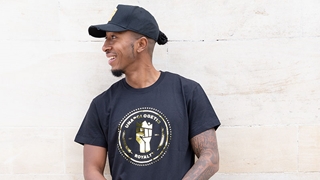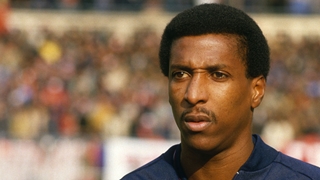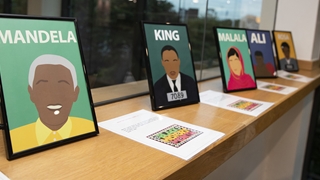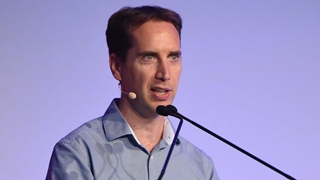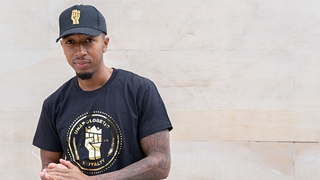
When I was asked to explain why Black History Month is important and what it means to me, the first thought that popped into my mind was excitement.
I’ve been given a platform to discuss something I'm passionate about and can share with others. This was quickly followed by nervousness: how am I going to be able to summarise the scale of why Black History Month is so important to me on a single page?
And I suppose that’s where I want to start. Black History Month is not something that needs to fit onto a single page nor is Black history something to fit into a single month.
There is a misconception that Black history began with slavery and ended with the civil rights movement in the 1960s, or at least this is all I was taught at school.
Black history has spanned millennia – the first modern human fossils were found in Africa after all – and the more we understand of it, the more we can break down barriers and stereotypes. Black history is the past, it shapes the present and enables our future.
With that said, and I may be contradicting myself here, that does not mean we can’t dedicate a month to celebrate it, and until Black history is widely recognised, embraced and taught widely within society, it's important that we continue to do so.
At the FA we see the strong history and impact of elite Black footballers, and despite the irrefutable existence of racism within football, it is a pioneering, rare industry where Black people can reach the top – albeit in a playing capacity as the lack of Black coaches, managers and board members contrasts massively with the success of Black players.
I, along with countless others I’m sure, came to the point in my life where I realised I was never going to make it as a professional footballer (if it wasn’t for my knee, honestly!), and therefore I shifted my focus to a more academic/professional pathway.
Academia is not always seen as a viable route to success for young Black kids and while I had a great support network and two loving parents, the incredible Black inventors, business people, doctors and scientists I learned about during Black History Month at school helped to emphasise in my young mind that I could still be successful.
So on a personal level, Black History Month is special because it serves as a reminder that Black people have made important contributions to society outside of entertainment (music, film or sport etc.). It encourages me to consider that I too have the potential to create positive change and be unapologetically myself, so much so that it is one of the drivers behind a clothing brand I will be launching soon: Unapologetic Royalty.
After the prominence of Black History Month during my school years, the importance of it seemed to dwindle as life got in the way. However, now in 2020, it feels like a watershed moment, a moment where so much is happening in the world, particularly around two major antagonists – one is a virus our lives have all been unimaginably affected by: COVID-19. The other is the long overdue global recognition of a ‘virus’ that has cost far more lives throughout history: racism and the systematic oppression of Black people, which has come to the forefront after a number of disturbing incidents.
The positive outcome is that racism, Black Lives Matter and Black history is being discussed openly, and as uncomfortable as that can sometimes feel, it's a very positive and necessary step to achieving meaningful change. It is imperative to continue the difficult conversations that need to be had in order to deconstruct institutionalised racism. We are already seeing these conversations being had, including here at the FA. As a result, while Black History Month has always been a time to reflect on past success, this year we should also use it as a vehicle to educate, discuss and drive actual change. We need to continue this journey.
If you have gotten this far then I would like to first thank you for taking the time to read this. Secondly, I would like to ask a favour, and that is to push yourself to learn more about race, have difficult, uncomfortable conversations, and explore what it means to become actively anti-racist.
A great way to start this is by expanding your reading and listening material. A personal favourite of mine is ‘Natives’ by Akala.


